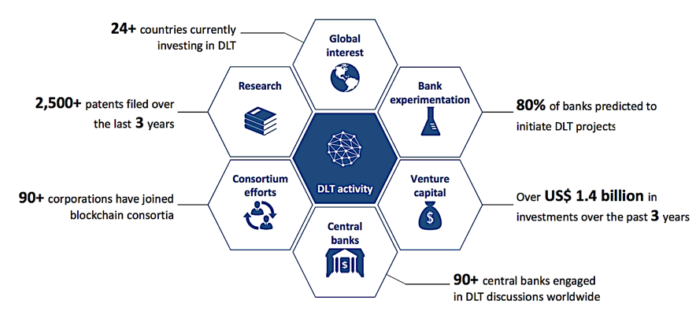The DevOps movement is a set of best practices and techniques that enable automated software delivery. DevOps involves both traditional operations management and software development, which means that it requires collaboration between both teams. However, this collaboration can be difficult because development and IT teams are often separated by thousands of miles.
This separation makes it more difficult for developers to work on their projects efficiently because they must wait for approval from IT staff before releasing their code into production environments like AWS or Azure.
In addition, IT organizations may not have enough resources available to invest in keeping up with all their development needs—something that can create waste within your organization’s budget as well as slow down your organization’s ability to deliver new features faster than ever before possible!
● Simplifies and enables automation
Table of Contents
Blockchain technology allows for the automation of manual processes. For example, in a supply chain system, transactions are recorded on the blockchain and these transactions can be verified by anyone at any time. This means that if there is an error or delay in one transaction, it will be detected immediately and corrected before any other transaction is processed.
With this approach, DevOps teams can now automate processes such as testing and deployment without having to manually check on each step yourself—you just need to know where all your components are located (in this case: files stored on your local machine).
● Provides a higher level of security and transparency
Blockchain technology is decentralized, meaning that there are no single points of failure. This means that if something goes wrong with a blockchain node or network, it will not affect other users because each transaction is recorded in a public ledger.
Blockchain transactions can also be verified by anyone at any time through the use of cryptography (encryption). This allows for greater transparency and trust in both parties involved in the transaction since we know exactly what happened when we see it recorded on one side or another—there’s no hiding anything!
● Increases efficiency of remote working
Blockchain technology is a game changer for DevOps teams. It reduces the cost of remote working by allowing developers to work from anywhere in the world, and it increases efficiency because they can build software faster and more reliably. There are several ways blockchain development services can help developers be more efficient:
- Work remotely across multiple time zones.
- Reduce travel costs while building products together.
Promotes trust and collaboration between teams
Blockchain technology is a powerful tool because it allows DevOps teams to work together in an environment where trust is built through transparency and shared information. When you have multiple people working on the same project, there can be a lot of confusion about who should be doing what at any given time. This can lead to delays or missed deadlines as different developers try to figure out who’s responsible for what part of the system.
Blockchain technology helps by providing a single source of truth for all projects within an organization—and not just for IT professionals: anyone involved in development or operations can use this technology so they know what needs to get done next without having to wait around until someone else finishes their task first!
● Improves reliability of processes and functions
Blockchain technology is a trustless system, which means that it does not require third-party verification. As such, blockchain can be used for any type of transaction or process that requires trust. This makes it ideal for use in DevOps environments where data needs to be processed quickly and efficiently.
Blockchain also has the ability to scale up easily as needed without sacrificing reliability or security by using available resources more efficiently than traditional systems do today (ease of scaling). For example: if you have an application that needs more servers running at once due to heavy demand on your servers—you can add more servers without having any downtime caused by hardware failures due to a lack of redundancy among physical hardware components inside each server itself!
● Reduces operational costs
In addition to reducing the need for third-party services, blockchain technology can also help cut operational costs by eliminating manual effort.
Blockchain is a distributed ledger that allows for the recording of data in a secure way. It’s not possible to change or delete any part of this record without compromising all other entries on the chain and rendering it useless. This makes it ideal for storing sensitive information like financial records or medical records because hackers cannot access them without being noticed by everyone else who has access to their system (which would be unlikely).
Blockchain also makes it easier for organizations to handle errors because there’s no room for human error when you’re trying to write thousands upon thousands of different types of transactions every day!
Conclusion
With all this in mind, DevOps teams can now use blockchain technology to improve their performance by addressing their common challenges.


